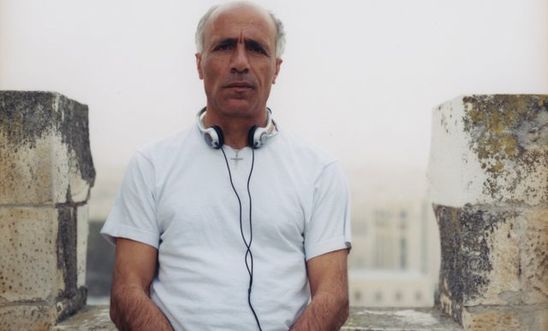
Press releases
Israeli nuclear whistleblower Mordechai Vanunu in bid to attend events in UK

Over 50 parliamentarians and Amnesty have invited banned whistleblower to London in June
Amnesty International is calling on the Israeli authorities to lift the ban on nuclear whistleblower Mordechai Vanunu leaving Israel so that he can attend events on the protection of whistleblowers in the UK next month.
Fifty-four MPs and peers have invited Vanunu to speak at an event in Parliament in London on 18 June, including senior parliamentarians Jack Straw, Baroness Kinnock and Lord Steele. Vanunu has been invited to talk about his 18-year prison sentence for revealing information about Israel’s nuclear capacity in 1986 and the ten years he’s spent since his release in 2004 living under highly punitive restrictions. Amnesty considers that the restrictions violate his rights to freedom of movement, expression and assembly.
Amnesty itself has also invited Vanunu to join a panel of prominent speakers in London on 17 June to discuss the protection of whistleblowers around the world (see www.frontlineclub.com/protecting-whistleblowers). Speakers will include Peter Hounam, the investigative journalist who interviewed Vanunu for The Sunday Times in 1986, and Nancy Hollander, the lead counsel for Chelsea Manning’s appeal case.
Meanwhile, Vanunu’s defence team in Israel is also petitioning the Israeli Supreme Court this week to allow him to travel to London. Currently an Israeli Ministry of Interior ban prevents Vanunu from leaving Israel, a ban which is likely to be renewed by the end of May. Vanunu is also not permitted to enter consulates or embassies, or to go within 500 metres of international borders, border passages, harbours or airports. Additionally, a military order banning Vanunu from participating in internet chats and communicating with foreign nationals, including journalists, without obtaining permission has just been renewed. At the end of May, when current restrictions on him expire, Vanunu’s defence team will petition the Supreme Court for all such restrictions to be lifted.
Avigdor Feldman, Vanunu’s lawyer, told Amnesty International:
“Upholding these undemocratic and ridiculous restrictions, for the last ten years, after Vanunu served a prison sentence of 18 years, has nothing to do with the security of the state, but are vindictive and cruel steps, which serve one purpose - to make an outcast of Vanunu and destroy him as a human being and as a true anti-nuclear activist.”
Amnesty believes that the Israeli authorities’ justification for their actions - that Vanunu could reveal further secret information about Israel’s nuclear arsenal and that he is a national security threat - are spurious. Vanunu’s knowledge of Israel’s nuclear capacity is restricted to 1986, almost 30 years ago. He has repeatedly stated that he has no more information. The information he does have is publicly available, not to mention completely irrelevant today.
According to nuclear physicist Frank Barnaby, who interviewed Vanunu in 1986 in his role as a consultant to The Sunday Times prior to its publication of Vanunu’s revelations, Vanunu was motivated by a belief that the Israeli and international public had a right to know about Israel’s nuclear weapons programme, and that “he seemed to be acting ideologically”.
Background
Mordechai Vanunu is a former technician at Israel’s nuclear plant near the southern town of Dimona. He revealed details of the country’s nuclear arsenal to The Sunday Times in 1986. He was abducted by Israeli secret service (Mossad) agents in Italy on 30 September 1986 and secretly taken to Israel. He was tried and sentenced to 18 years’ imprisonment.
Vanunu was held in prolonged secret detention, in violation of the prohibition of arbitrary arrest or detention contained in Article 9 of the International Covenant on Civil and Political Rights (ICCPR). There are also serious concerns about the secrecy of his trial and the severe nature of the charges on which he was convicted, as well as the 11 years he spent in solitary confinement between 1986 and 2004, which amounted to cruel, inhuman or degrading treatment.
The ongoing restrictions against him are arbitrary and contrary to Israel’s obligations under international law, particularly the ICCPR, which prohibits arbitrary interference in the rights to freedom of movement, freedom of expression and freedom of association, and protects individuals from being punished again for the same offence. The restrictions are not part of any parole conditions imposed since he served his full sentence. In 2010 Vanunu was imprisoned for three months after being convicted of breaching his restrictions by speaking to foreigners and attempting to attend Christmas Mass in Bethlehem.
Note to editors
Avigdor Feldman, Mordechai Vanunu’s lawyer, is available for interview. Please contact the Amnesty International UK media team.